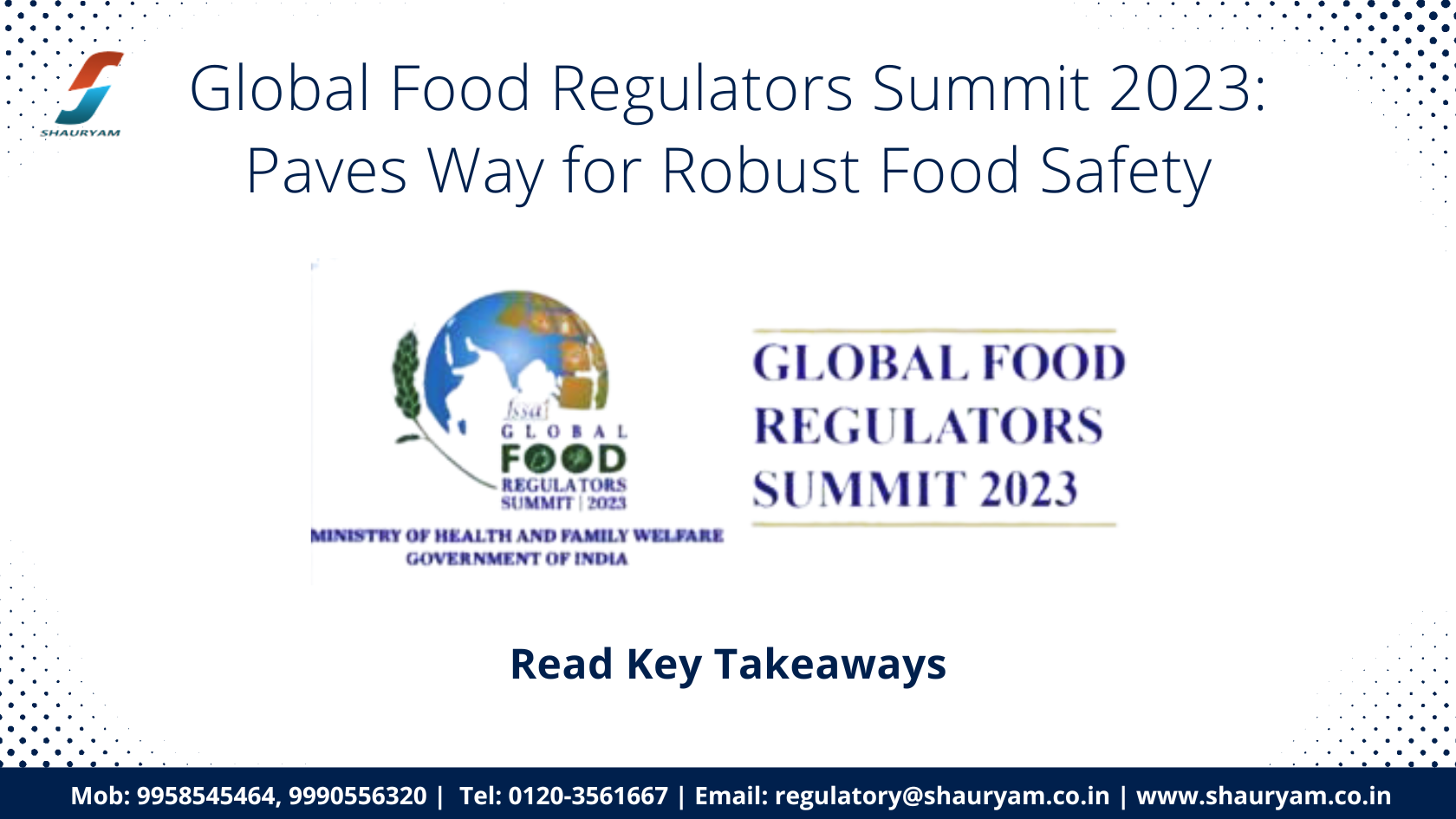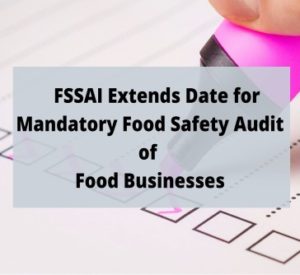The Global Food Regulators Summit 2023 was organized in Delhi as a G20 event by FSSAI under the Ministry of Health on the 20th and 21st of July 2023. The summit served as a valuable platform for participants to discuss cohesive networks on food safety and regulations. It facilitated the mutual exchange of best practices, compliance understanding, and information sharing, fostering synergies among global regulators and agencies.
The summit witnessed active participation from diverse stakeholders, including food regulators from G20 member countries and renowned international organizations such as WHO, CODEX, FAO, Federal Institute for Risk Assessment (BfR) (Germany), the Center for Food Safety and Applied Nutrition (USA), Health Canada, the Australian Institute of Food Safety and Technology, etc. National entities and research institutes such as APEDA, EIC, and MPEDA also contributed their expertise, showcasing a collective commitment to food safety and quality.
The first technical session of the summit centred on diverse food regulatory systems, risk mitigation strategies, global challenges faced by regulators, and enhancing food safety through a cohesive approach.
The opening session was followed by a panel discussion on the ‘Global Regulatory Framework’, with Panelists from eight different countries including Brazil, Bhutan, Chile, Ethiopia, Mauritius, Mozambique, the US and New Zealand. Emphasis was on collaboration among food regulators for effective and efficient regulation, harmonizing standards for consumer safety and international trade facilitation. Strategies for robust national food control systems and stakeholder involvement in regulation development were also discussed.
The second technical session on ‘Anti-Microbial Resistance (AMR)‘ addressed the global challenges of AMR and emphasized collaborative solutions. Discussions centred on policies, a global task force, and India’s National Action Plan on AMR. The importance of networking and exploring alternatives to antibiotics using emerging technologies was highlighted to combat AMR collectively.
The session on ‘Health Supplements and Nutraceuticals’ was also held which emphasized the need for strong regulatory standards, research, and product quality assurance. Discussions covered Codex guidelines, non-sugar sweeteners’ adverse effects, risk assessment of probiotics, and leveraging Ayurveda for new food products.
Another session titled ‘Contaminants and Residues‘ focused on harmonizing food safety standards, setting safety limits, and employing mitigation strategies for chemical contaminants and pesticide residues. Emphasis was on data generation, processing factors, and international collaboration for effective risk mitigation.
The panel also discussed strengthening the organic food sector, promoting sustainable farming, creating awareness, exploring market trends, and ensuring authenticity.
The panel also highlighted the importance of safe animal feed, regulations, and traceability. Discussions focused on innovative monitoring, risk assessment, and policy formulation for enhanced food safety.
The session on ‘Innovation in Food Emergency Response, Recall, and Analysis‘ highlighted the impact of technology on food safety. The adoption of the Internet of Things (IoT) and Blockchain can enable robust traceability, while AI and instrumental analysis will improve safety assessments. Rapid analytical kits, validated for regulatory purposes, and Big data analytics to enhance decision-making for food emergency response.
Read more: Outsourcing Regulatory Services for FSSAI Matters
Groundbreaking Initiatives
- The release of Food-o-Copoeia, a comprehensive collection of food category-wise monographs, serves as a single-point reference for all applicable standards for specific product categories.
- Another remarkable initiative is the common regulator’s platform ‘SaNGRAH’ (Safe Food for Nations: Global Food Regulatory Authorities Handbook). It is a comprehensive database of Food Regulatory Authorities from 76 countries worldwide, presenting their mandates, food safety ecosystems, food testing facilities, contact details for food authorities, and information related to SPS/TBT/Codex/ WAHO. SaNGRAH is available not only in Hindi and English but also in six Indian languages—Gujarati, Marathi, Tamil, Telugu, Kannada, and Malayalam.
- Additionally, the Summit witnessed the launch of a Common Digital Dashboard—a unified IT portal providing comprehensive information on standards, regulations, notifications, advisories, guidelines, contamination limits, and the latest developments by Food Regulators in India.
Source: FSSAI





